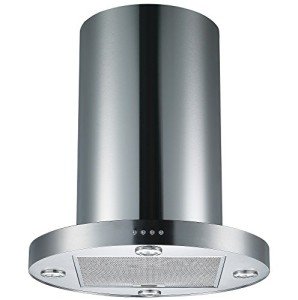You'll Never Guess This Cooker Hood For Island's Tricks
본문
Cooker Hood for Island: Essential Guide to Choosing and Installing the Right Model
In contemporary kitchen areas, the island hood has become a vital home appliance for property owners aiming to integrate functionality with design. Not just does it enhance air quality by expelling smoke, odors, and grease, but it also works as a design centerpiece. This post checks out the importance of island hoods, the elements to think about when picking one, the different types available, and setup suggestions.
Comprehending Island Hoods
Island hoods are ventilation systems that hang above kitchen islands, normally where cooktops are installed. Unlike conventional range hoods, which connect to walls, island hoods are typically in the center of the kitchen, needing thoughtful factor to consider of style and efficiency.
Why Choose an Island Hood?
- Aesthetic Appeal: An island vent hood hood can improve the total appearance of your kitchen, often offered in numerous styles and surfaces to match your decor.
- Improved Air Quality: By efficiently getting rid of smoke, steam, and smells, island hoods help keep a fresh environment in the kitchen.
- Enhanced Lighting: Many island hoods come equipped with built-in lights, supplying additional lighting for cooking jobs.
Factors to Consider When Choosing an Island Hood
Selecting the best island hood involves thinking about several vital elements. Here's a combined summary:

1. Size and Dimensions
- Hood Width: The hood must cover a minimum of the width of the cooktop. For ideal performance, a basic guideline is that it ought to extend 3 inches on each side.
2. Kind of Ventilation
- Ducted: This type vents air outside, offering maximum effectiveness. It's perfect for bigger kitchens and those that prepare frequently.
- Ductless: Ductless hoods recirculate air through filters. These are easier to set up but may not be as efficient in larger spaces.
3. Air flow Capacity
- CFM (Cubic Feet per Minute): This measurement suggests just how much air the hood can move. A greater CFM is better for heavy cooking, while lower CFMs are enough for light use. A basic recommendation is:
- Light Cooking: 200-400 CFM
- Medium Cooking: 400-600 CFM
- Heavy Cooking: 600+ CFM
4. Design and style
- Consider numerous surfaces and designs:
- Chimney Style: Features a wall-mounted chimney that suspends.
- Canopy Style: A more compact choice, often installed straight over the cooktop.
- Downdraft: Integrated into the cooktop, increasing only when required.
5. Noise Level
- Sone Rating: This shows the noise produced by the hood. A sone score of 1-2 is considered quiet, while anything above 4 might be invasive.
6. Functions and Controls
- Lighting Options: Look for LED lighting for energy efficiency.
- Speed Settings: Multiple extractor fan for island hob speeds can provide more control depending on the cooking circumstance.
- Filter Type: Select in between mesh, baffle, or activated charcoal filters based upon upkeep and cooking design.
Setup Tips
Installing an island cooker hood can be a challenging task. Here are some essential actions for an effective setup:

Choose the Right Height: Ideally, place the hood 30-36 inches above the cooktop for ideal efficiency and security.
Surface Preparation: Ensure that the ceiling is structurally sound to support the weight of the hood.
Electrical and Ductwork: If going with a ducted model, strategy for ductwork to be run to the outside. Talk to an expert if required.
Follow Instructions: Always follow the manufacturer's setup guidelines for best practices.
Check the System: Once set up, evaluate the ventilation and lighting functions before completing any last touches.
Selecting and setting up a cooker hood for island hood for an island is an important financial investment in both the functionality and visual appeals of a kitchen. By thinking about elements like size, ventilation type, airflow capability, style, installation guidelines, and easy to use features, homeowners can enhance their cooking environments while making sure much healthier air quality.
Regularly Asked Questions (FAQs)
Q1: How do I understand what size island hood I need?A: Measure the width of your cooktop and select a hood that is at least as large, preferably extending a couple of inches on each side. Q2: Are ductless hoods simply as reliable as ducted
ones?A: Ductless hoods are easier to set up and need less maintenance but may not carry out as effectively as ducted hoods for heavy cooking requirements. Q3: How often ought to I clean up the filters?A: It's advised to tidy or change filters every 1-3 months, depending upon use. Q4: cooker hood For island Can I set up the island hood myself?A: While some homeowners may select to install the hood themselves, employing an expert is recommended, specifically for ducted models. Quick Reference Table
: Island Hood Selection Guide Aspect Recommendation Hood Width A minimum of equal to cooktop; extends 3 inches on each side Airflow (CFM )Light Cooking

댓글목록0
댓글 포인트 안내